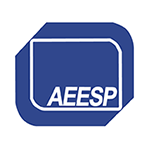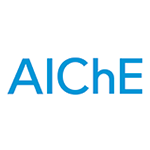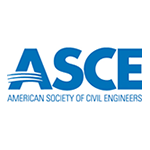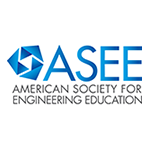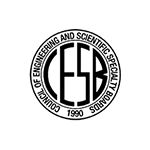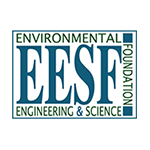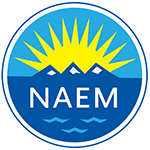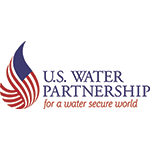
Earn Your AAEES Microcredential in AI (2025) – On Demand
Only $99 (a $160 value)

This self-paced, on-demand course series from the American Academy of Environmental Engineers and Scientists (AAEES) explores the transformative role of Artificial Intelligence in environmental engineering and science. By completing four expert-led webinars and their associated quizzes, participants earn a digital microcredential in AI.
What’s Included:
- 4 on-demand webinars from leading experts
- Quizzes to reinforce learning
- A digital badge upon completion
- Real-world case studies and applications
- Topics ranging from smart water systems to generational perspectives on AI
Cost:
Only $99 (a $160 value)
Ideal For:
Environmental engineers, scientists, students, and professionals interested in integrating AI into water systems, infrastructure, and sustainability strategies.
Outcome:
Gain practical knowledge, showcase your expertise with a digital badge, and stay ahead in the evolving field of environmental AI.
Module 1
Untangling the Role of AI in Water: From Promise to Practice
Presenter
Dr. Branko Kerkez
Arthur F. Thurnau Professor
Director, Digital Water Lab @ U-M, www.digitalwaterlab.org
University of Michigan, Department of Civil and Environmental Engineering
Origins and Terminology of AI in Water Systems
The webinar begins by demystifying the hype. It lays out the origin stories and core terminology required to have a meaningful, informed discussion about applying AI to water management. This foundation is essential before diving into technical or practical examples
Smart Water Systems in Action
You'll explore real-world examples of smart water systems that leverage open-source hardware, sensors, and control algorithms. These innovative setups demonstrate how such systems are already making water infrastructure more adaptive and efficient.
Reducing Infrastructure Footprint
A major highlight: how AI and smart sensing can dramatically shrink traditional infrastructure needs, particularly in managing runoff pollution and mitigating flooding. This means less reliance on heavy physical infrastructure and more on responsive, data-driven systems.
Assessing Risks and Timing for Adoption
The presentation doesn't shy away from the risks. It outlines the inherent risks of adopting AI technologies versus the status quo, making a compelling case that now may be the best time to embrace these tools responsibly.
Insight from a Leading Expert in Digital Water Innovation
Dr. Branko Kerkez brings deep expertise. As the Director of the Digital Water Lab at the University of Michigan and CTO of Hyfi, his work spans real-time sensing, flood forecasting, robotics, and open-source platforms like Open-Storm.org. His credentials lend both credibility and a forward-looking perspective to the conversation.
Module 2
Application of AI/ML for Engineering Solutions in the Water Sector
Presenter
Aryan Emaminejad, Ph.D.
Data Scientist/AI-ML Engineer
Black & Veatch
Integration of Data-Driven Models with Mechanistic Approaches
You’ll learn how AI and ML models can be seamlessly combined with traditional engineering and mechanistic models to improve water system predictions, control, and overall performance.
Enhancing Predictive Capabilities
The webinar demonstrates how integrating AI/ML enables more accurate forecasting and real-time decision-making in complex water and wastewater infrastructure.
Boosting Operational Efficiency
It highlights strategies where AI/ML improves operational workflows—optimizing resource use, improving treatment processes, and streamlining maintenance schedules.
Exploring Digital Tools and AI Platforms
You'll be introduced to innovative digital tools and platforms designed to support AI/ML adoption in water engineering—tools that facilitate modeling, monitoring, and diagnostics in real-world settings
Real-World Case Studies from Black & Veatch
The session showcases practical applications from leading engineering firm Black & Veatch. These case studies illustrate how AI/ML has been deployed to solve actual challenges in water infrastructure and treatment systems.
Module 3
WaterGPT: Tailored AI for Water Engineering, Learning & Net-Zero Strategies
Presenter
Z. Jason Ren, Ph.D.
Professor
Princeton University
Understanding WaterGPT — AI Tailored for Water Engineering
You’ll learn about WaterGPT, a specialized AI model crafted specifically for water engineering. This likely includes how it's fine-tuned on relevant datasets to support tasks such as designing systems, managing resources, or solving water-related engineering challenges.
Integration of AI into Engineering Workflows
The webinar promises insights into how AI—particularly WaterGPT—can be integrated into traditional engineering workflows: whether for design support, data-driven decision-making, or enhancing predictive modeling processes.
Educational & Learning Applications
Since the title mentions “learning,” you’ll gain understanding of how WaterGPT can be used as an educational tool—possibly helping students or professionals understand complex water systems, simulate scenarios, or interactively explore water engineering concepts.
Net-Zero Strategy Support
The webinar addresses how WaterGPT facilitates net-zero strategies, likely by aiding in planning and evaluating sustainable water infrastructure, optimizing resource usage, or supporting low-carbon decision-making across water projects.
Real-World Use Cases in Water Management
Though details are limited, the webinar very likely showcases real-world applications of WaterGPT in water management—demonstrating how the AI has been applied to practical engineering problems or environmental planning in the sector.
Module 4
Generational Perspectives on Generative Artificial Intelligence
Presenters
Daniel B. Oerther, PhD, PE, BCEE, BCES
Executive Director
American Academy of Environmental Engineers and Scientists
Daniel B. Oerther, Jr. (Barney)
Freshman
Rolla High School
Generational Perspectives on Generative Artificial Intelligence
Understanding Generational Differences in AI Perception
The webinar explores how individuals from different age groups interpret and engage with generative AI, highlighting the varying levels of comfort, trust, and expectations across generations.
Insights into AI's Impact on Education and Learning
You'll learn about the implications of generative AI in educational settings, including how it can enhance learning experiences and the potential challenges it presents to traditional teaching methods.
Ethical Considerations in AI Development
The discussion delves into the ethical dilemmas associated with AI, such as data privacy, algorithmic bias, and the responsibility of developers in creating fair and transparent AI systems.
Future Trends in AI Technology
The speakers provide their perspectives on the future trajectory of AI, discussing emerging trends, potential advancements, and how different generations might adapt to these changes.
Personal Experiences with AI Tools
Through personal anecdotes, both speakers share their experiences using AI tools, offering practical insights into how AI is integrated into daily life and work from their unique generational viewpoints.
|









